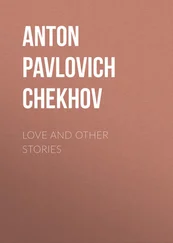GALINA asked if Kolya really had been killed in action. The petty bureaucrat scanned the rest of the file.
“Technically, no. He was likely killed in captivity. But dead all the same.” The bureaucrat delivered the news in the same tone he used to greet an orderly good day. “We haven’t recovered a body, but in hostage situations like this, when one soldier makes it out, the other one, well, he often doesn’t. Danilo said he died on the mined meadow itself.”
“I want to see where he died,” Galina said.
The petty bureaucrat explained, at considerable length, his uneasiness in declining the request of an oligarch’s wife, and the star of Deceit Web , no less, but that the mountainous region was still an active war zone, even if given the euphemism of zone of counterterrorism operations .
“What about the painting you mentioned? The one that shows the place where Kolya died?” Galina asked later that afternoon. “I want to see that.”
Three days later, Galina met the former deputy director of the Museum of Regional Art. The museum had been destroyed several years earlier, and the deputy director had begun a second career as a tour guide.
WE’VE been told that Galina was never the same after returning from Chechnya. She ate little. She turned morose. Even when she took her daughter for afternoon walks in the park, she returned to the penthouse pallid and weary. Whatever she’d seen in Chechnya had changed her — and we don’t really know what she saw, our story is rumor and hearsay, which when applied to a figure like Galina quickly becomes myth.
In short, she was stupid enough to become a dissenter. Had she educated herself on the situation in Chechnya, she would have seen that the president was correct in his approach, as he is in all things. Don’t valorize her: She only wanted to create enough distance to enjoy the luxuries of the ruling class without feeling morally complicit in its actions. They were only whispers, of course. Galina wasn’t a protester. Yet anyone who has gone to see one of Galina’s films knows that a single whisper can be quite a disturbance when the rest of the audience is silent.
No one paid heed to her off-color comments at dinner parties and art gallery openings. But when we heard Galina as a phone-in guest on a radio show we knew from her breathless first words that she hadn’t thought through her entire course of action. What could have prompted her? How could she be so ungrateful to the government that had given her so much? She had no right! She had everything! Later we learned that the radio station was the subsidiary of a media holding company, which in turn was the subsidiary of a conglomerate whose primary shareholder was none other than the now thirteenth richest man in Russia, our dear oligarch. Had she known it when she mocked the prime minister’s love of sport by calling him a bare-chested barbarian ? It is unlikely. After all, as the newly minted thirteenth richest man in Russia, the oligarch was a primary shareholder in just about everything. For a man like the oligarch whose fortune and freedom relied on good relations with the Kremlin, political marriages would always trump romantic ones.
In the ensuing weeks, her films disappeared from DVD kiosks and she was quietly but officially stripped of her Miss Siberia title. She wasn’t airbrushed from photographs, as her grandmother had been; instead, she was Photoshopped from Miss Siberia publicity materials. We didn’t blame the oligarch. The Khodorkovsky affair was still front-page news. Galina lost the Petersburg and Moscow condos, the chauffeured black sedans, the pearls and furs. Everything for which she did not possess a title, deed, or receipt was taken away. The oligarch, who didn’t think much of children, particularly his own, granted Galina one surprising concession, giving her their daughter to raise in Kirovsk.
NOW we see Galina all the time. Not on billboards of cinema screens, but in the market, walking down the street, waiting at the bus stop. Her face is the same size as ours. Still prettier, we’ll grant her that, but we’ve long outgrown such jealousies. In general, we’re happy. The rising price of oil and natural gas has stabilized the ruble. The mining combine profits grow in correlation to the Chinese economy. Ninety-five percent of the world’s catalytic converters are made with Kirovsk palladium and our town prospers beneath denser layers of pollution thanks to the efforts of American and European environmentalists hell-bent on keeping their skies clean. From time to time we hear stories not unlike those of Galina and her grandmother; people who speak too loudly tend to find themselves charged with corruption and sentenced to Siberian prisons. Their lives are small sacrifices.
Look across the street. That’s Galina’s girl on the jungle gym, playing with our girls, laughing and shouting down the slide. A beautiful girl, we won’t deny it. Usually Galina sits on this bench with us while we reminisce and vent our frustrations and share our joys. Mainly, we talk about our children. How they infuriate us; how they make us ache; how our fear of failing them startles us from our sleep. No one likes a braggart, and to praise your children is to curse them with misfortune, but we admit it, if only in secret, if only to ourselves: We are proud, we are so proud of them. We’ve given them all we can, but our greatest gift has been to imprint upon them our own ordinariness. They may begrudge us, may think us unambitious and narrow-minded, but someday they will realize that what makes them unremarkable is what keeps them alive. In a few years, they will be married and having children of their own. We wonder what stories our grandchildren will tell of us and if their stories will sound at all like ours.
The Grozny Tourist Bureau
GROZNY, 2003
The oilmen have arrived from Beijing for a ceremonial signing over of drilling rights. “It’s a holiday for them,” their translator told me, last night, at the Grozny Eternity Hotel, which is both the only five-star hotel and the only hotel in the republic. I nodded solemnly; he needn’t explain. I came of age in the reign of Brezhnev, when young men would enter civil service academies hardy and robust, only to leave two years later anemic and stooped, cured forever of the inclination to be civil or of service to anyone. Still, Beijing must be grim if they’re vacationing in Chechnya.
“We’ll reach Grozny in ten minutes,” I announce to them in English. The translator sits in the passenger seat. He’s a stalk-thin man with a head of hair so black and lustrous it looks sculpted from shoe polish. I feel a shared camaraderie with translators — as I do with deputies and underlings of all stripes — and as he speaks in slow, measured Mandarin, I hear the resigned and familiar tone of a man who knows he is more intelligent than his superiors.
The road winds over what was once a roof. A verdigris-encrusted arm rises from the debris, its forefinger raised skyward. The Lenin statue once stood in the square outside this school, arm raised, rallying the schoolchildren to glorious revolution, but now, buried to his chin like a cowboy sentenced to death beneath the desert sun, Vladimir Ilich waves only for help. We drive onward, passing brass bandoliers and olive flak jackets, red bandannas and golden epaulettes, the whole palette of Russian invasion painted across a thunderstorm of wreckage. Upon seeing the zero-two Interior Ministry plate dangling below the Mercedes’s hood, the spies, soldiers, policemen, and armed thugs wave us through without hesitation. The streets become more navigable. Cement trucks can’t make it from the cement works to the holes in the ground without being hijacked by one or another shade of our technicolor occupation and sold to Russian construction companies north of the border, so road crews salvage office doors from collapsed administration buildings and lay them across the craters. Attached to the doors are the names and titles of those who had once worked behind them. Mansur Khalidov: Head of Oncology; City Hospital Number Six. Yakha Sagaipova: Assistant Director of Production; Ministry of Oil and Gas Industry. Perhaps my name is written over a crater on some shabby side street, supporting the weight of a stranger who glances at the placard Ruslan Dokurov: Deputy Director; Grozny Museum of Regional Art and wonders if such a person is still alive.
Читать дальше












